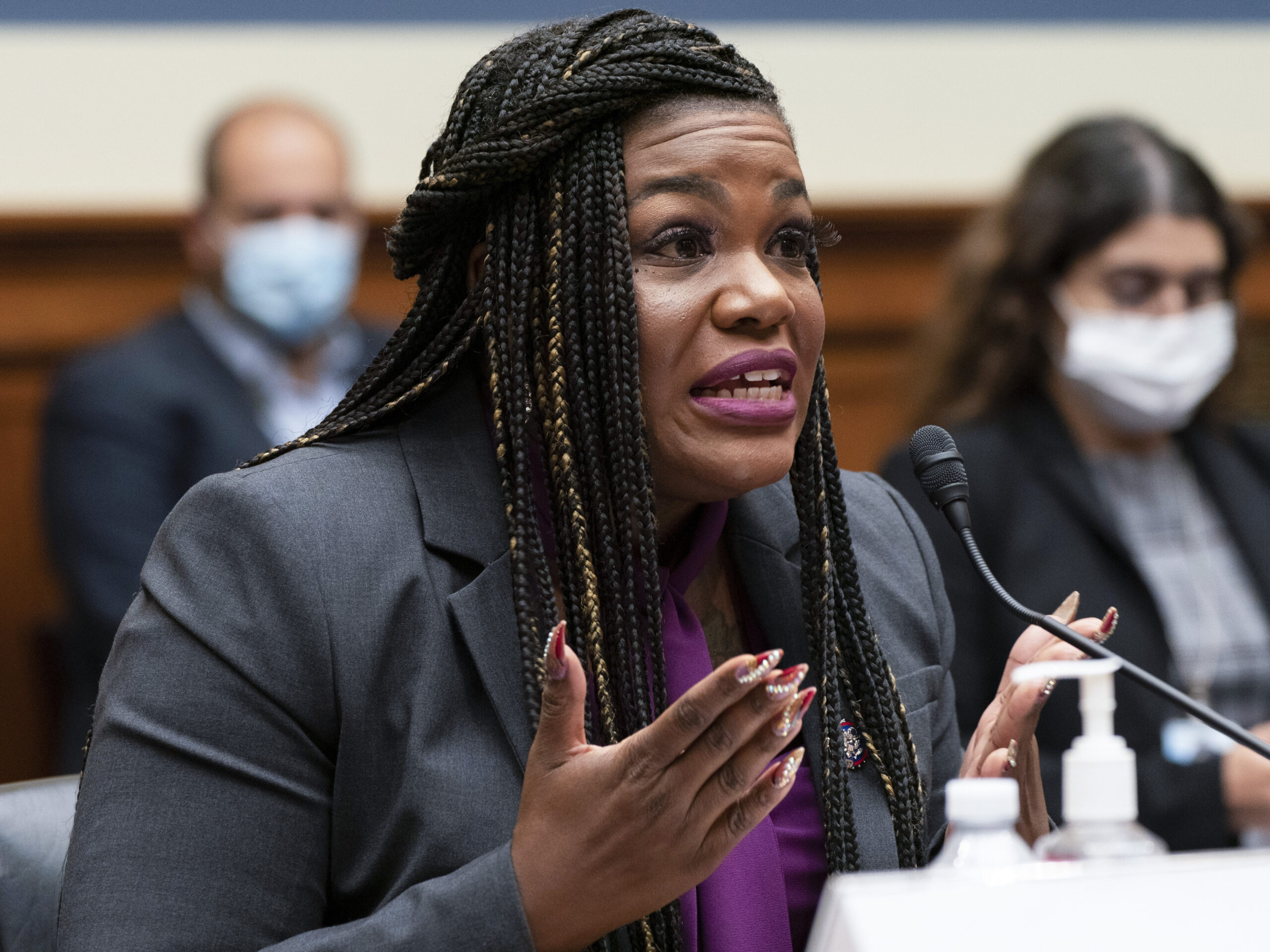By Donna M. Owens
As California prepares to release a report that will recommend reparations for descendants of enslaved people, federal lawmakers are pursuing their own efforts to redress the effects of slavery and the generations of discrimination that has followed for Black Americans.
Rep. Cori Bush, D-Mo., introduced the latest federal effort to support reparations last month with H.R. 414, the Reparations Now Resolution, which seeks to advance reparations at the federal, state and local levels.
Bush said the country has “a moral and legal obligation” to repair the “lasting harm” caused by the enslavement of millions of Africans, and by practices such as segregation and redlining on subsequent generations. The resolution indicates that a minimum of $14 trillion would be necessary to close the racial wealth gap and other inequities.
The resolution comes as the California reparations task force, established in 2020 to study and develop proposals, wraps up its work. Following a 500-page interim report last year, the group has held multiple public hearings, and will release its final report by July 1.
“I have, for the better part of two years, stated that reparations is more than just a check,” California Assemblyman Reginald Jones-Sawyer, a task force member, said in a statement. “It is about removing institutional barriers in the form of laws that have and continue to marginalize Black communities in California.”
State lawmakers will then need to propose policies as bills in the Legislature.
Rep. Barbara Lee, a California Democrat who has been in Congress since 1998, is a longtime supporter of reparations. She spoke when the statewide task force convened this year and was also a co-sponsor of Bush’s resolution on Capitol Hill.
“Congresswoman Bush’s reparations resolution couldn’t come at a more important time, as my home state of California continues to progress with the work being done by their reparations task force,” Lee said through a spokesperson. “We’re hopeful that the task force’s recommendations serve as a model for the federal government and for states across the country. It is far past time for the federal government to catch up. And make no mistake: We have the pieces in place here in Congress to move forward.”
Members of the California task force, for their part, have said they want the report to have national impact.
“This will be the model for everyone, whether they do it at their local level, state level or when they finally do national reparations,” Jones-Sawyer told NBC News in March. “This will be used by others,” he added. “And the reason ours will hold up is because the foundation of it is based on data, hard core data, suitable data.”
Lee re-introduced a resolution in May calling for the establishment of the first United States Commission on Truth, Racial Healing and Transformation to examine the effects of slavery, institutional racism and discrimination against people of color.
Lee said the many challenges Black communities face today — from health disparities laid bare by the pandemic, to economic inequality and poverty, to environmental racism — can be traced back to what she termed “400 years of systemic government-sanctioned racism.”
While calls for reparations in America date to slavery’s abolition in the 1860s, in 1989 Rep. John Conyers, D-Mich., introduced what would become H.R. 40 to study slavery, its effects and appropriate remedies. Conyers introduced the legislation at the beginning of each congressional session for nearly three decades (he died in 2019, two years after leaving Congress).
Rep. Sheila Jackson Lee, D-Texas, has taken up the mantle in the House of Representatives by introducing an updated version of H.R. 40. It would establish a commission to study reparations and consider a national apology and other redress for the institution of slavery, as well as subsequent racial and economic discrimination against African Americans.
The previous congress voted to advance the legislation out of committee and to the House floor for full consideration. It was the first time H.R. 40 had passed a committee vote, but it did not advance beyond that historic step.
Lee described the measure as a “pathway for a governmental framework that will help restore national balance and unity in terms of wealth, health care, education, housing and the criminal justice system.” She added that it would enable Congress to start a movement toward the national reckoning that is needed to help bridge racial divides.
Predicting that “America will truly be the beneficiary,” Jackson Lee said that “reparations are ultimately about respect, reconciliation and healing — and the hope that one day, Americans of all backgrounds can walk together toward a more just future.”
In January, Sen. Cory Booker, D-N.J., introduced S. 40, the Senate companion legislation to H.R. 40.
“Our nation must reckon with its dark past of slavery and its continued oppression of African Americans, fueled by white supremacy and racism,” Booker said in a statement. “Many of our bedrock domestic policies that have ushered millions of Americans into the middle class have systematically excluded Black individuals.”
All total, hundreds of organizations have endorsed the various reparations legislation now pending in Congress.
“We’ve been working on it for two years,” said Bush, now in her second term. “Before I entered Congress, I promised on the campaign trail that I’d do this if ever given the chance.”
She added: “There is momentum. It’s time.”

